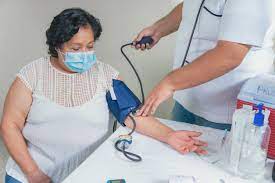Some infections can cause cancer.
I remember very well that when I began my medical oncology training at the National Cancer Institute in Lima in 1980, it was almost sacrilegious to think that cancer could be caused by infection. How much has happened in these 34 years? It is now known that certain types of cancer, such as cancer of the cervix, liver, and stomach, could be caused by an infectious agent.
Most concerning is that infection-related cancers are more common in Hispanic people over 50 living in the United States. In this regard, a recent study has been observed by the Institute for Health Promotion Research, University of Texas Health Science Center in San Antonio, Texas, found that Hispanics living in South Texas have the highest incidence rates of liver cancer in the entire United States. Joined.
In the last 20 years, it has been discovered that certain chronic infections can cause DNA mutations and therefore cause cancer in susceptible people. Infection-related cancers include the following:
- The strains of the human papillomavirus (HPV) are responsible for causing high-risk of Cervical cancer
- Stomach cancer caused by chronic infection with Helicobacter pylori bacteria
- Liver cancer is caused by chronic disease with hepatitis B (HBV) and hepatitis C (HCV) viruses
Cervical cancer: This disease is almost twice as common in Hispanic women compared to women of other ethnic and racial groups in the USA. For reasons still unknown, human papillomaviruses (HPV) are more likely to cause genetic changes in the cells of the cervix of Hispanic women and lead to cancer. These changes can be found early either with the cytology test or the HPV virus test.
These are the recommendations of the American Cancer Society for the early detection of cervical cancer as below:
- The Pap smear should start after the age of 21.
- Between the ages of 21 and 29, Pap smears can be done every three years, and HPV retesting should not be done at this age unless the woman has an abnormal Pap smear.
- Women between the ages of 30 and 65 can have a Pap smear every three years, or alternatively, they can have a Pap smear and HPV test every five years.
- Women over 65 who have had regular negative screenings should no longer have Pap smears. Women with a history of a pre-cancerous abnormality should be screened for the next 20 years after the anomaly is treated, even after age 65.
- Women without a uterus (hysterectomy) should not be tested.
- Women vaccinated against the human papillomavirus (HPV) should continue to be tested according to the recommendations above, depending on their age.
Stomach cancer: in the United States, where the disease is not very common, early detection tests are not recommended. In contrast, in Japan, where the disease is widespread, gastroscopy is performed preventively to detect the disease at an early stage.
- Consume plenty of fruits, colourful vegetables and foods rich in antioxidants.
- Do not smoke cigarettes because the risk of developing cancer in the area of the stomach (near the junction with the oesophagus) is higher in smokers.
- Treat peptic ulcer disease caused by Helicobacter pylori and go to the doctor if symptoms such as heartburn, frequent indigestion and cruets appear. For example, 90% of duodenal ulcers and 80% of stomach ulcers are caused by H. pylori infection, and this infection can be cured with a two-week course of antibiotics.
Liver cancer it is estimated that 3.2 million Americans have chronic hepatitis C (a condition that can lead to liver cancer. In the absence of a vaccine, it is recommended that the following people ask their doctor to investigate if they have the disease:
- Being born between 1945 and 1965
- Have had treatment for clots in the veins before 1987
- Having received a blood transfusion or organ transplant before July 1992
- Being receiving hemodialysis treatment for a long time
- work with patients
- Being infected with the HIV virus
If it is found that the person suffers from chronic hepatitis C, there are modern and effective treatments against this disease.
In relation to hepatitis B, there is a vaccine that should be applied to all newborns but can be used at any age; You can consult with your GP.
Researchers at the University of Texas at San Antonio still don’t know why Hispanics in South Texas suffer so frequently from liver cancer. Still, they are considering the incidence of hepatitis, diabetes, obesity, genetic predisposition and even possible environmental pollution in the border area.


